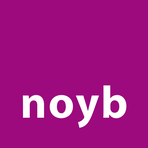X Under Fire: Privacy Complaints Over AI Training Spark Controversy
August 13, 2024, 7:17 am
In the digital age, privacy is a fragile glass. One crack, and it shatters. Recently, the social media platform X, owned by Elon Musk, found itself in the eye of a storm. An Austrian advocacy group, NOYB, has filed a series of complaints against X, alleging that the company used user data to train its AI, Grok, without consent. This move has sent ripples across the European Union, raising questions about data privacy and corporate responsibility.
The complaints were lodged with nine different EU authorities, targeting the Irish Data Protection Commission (DPC) for its perceived inaction. NOYB, led by privacy activist Max Schrems, is not just throwing stones; it’s building a case. The allegations hinge on the General Data Protection Regulation (GDPR), a robust framework designed to protect personal data in the EU. The crux of the issue? X allegedly scraped user data without asking for permission. This is akin to taking someone’s lunch from the fridge without asking. It’s not just rude; it’s illegal.
The controversy erupted when users began noticing that their interactions on X were being shared with Grok. This wasn’t a casual sharing of memes; it was a systematic collection of data for AI training. Users were left in the dark, with the data-sharing feature turned on by default. For many, navigating the settings to opt out felt like finding a needle in a haystack. This lack of transparency is a red flag. Users deserve to know how their data is being used.
Grok, the AI chatbot developed by Musk’s xAI, has been under scrutiny since its inception. Critics argue that it has borrowed heavily from OpenAI’s codebase, raising ethical questions about originality and ownership. Musk’s team insists that while they used web data to train Grok, they did not copy code. This is a fine line to walk. The tech world is rife with accusations of plagiarism, and Grok is now part of that narrative.
The timing of these complaints is significant. The EU has been tightening its grip on data privacy, and companies are feeling the heat. The GDPR is not just a set of rules; it’s a warning shot. Organizations that flout these regulations risk hefty fines and reputational damage. X’s situation is a wake-up call for tech giants. Ignoring user consent is no longer an option.
As the complaints unfold, the Irish DPC finds itself in a precarious position. The watchdog is responsible for enforcing GDPR compliance for X, but critics argue that its actions have been half-hearted. This scrutiny is not just about X; it’s about the integrity of the DPC and its commitment to protecting user data. If the DPC falters, it sends a message to other companies: the rules can be bent.
Musk’s ventures often walk a tightrope between innovation and controversy. From Tesla’s self-driving claims to SpaceX’s ambitious missions, the billionaire is no stranger to pushing boundaries. However, with Grok, he faces a different beast. The AI landscape is littered with challenges, and privacy concerns are at the forefront. As Grok learns and evolves, it must do so with respect for user data.
The complaints filed by NOYB are not just legal maneuvers; they are a rallying cry for privacy advocates. The message is clear: users have rights, and companies must respect them. This is a pivotal moment for X. The outcome of these complaints could shape the future of AI development and data privacy.
Public sentiment is shifting. Users are becoming more aware of their digital footprints. They want control over their data. Companies that ignore this shift do so at their peril. X must navigate this landscape carefully. Transparency and user consent are no longer optional; they are essential.
As the dust settles, the implications of this controversy will resonate beyond X. Other tech companies will be watching closely. The outcome could set a precedent for how AI is developed and how user data is handled. The stakes are high.
In conclusion, X’s current predicament is a reflection of a larger issue in the tech industry. Privacy is not just a checkbox; it’s a fundamental right. As the EU tightens its regulations, companies must adapt or face the consequences. The battle for user data rights is just beginning, and X is at the forefront. The question remains: will they rise to the occasion or crumble under the pressure? Only time will tell.
The complaints were lodged with nine different EU authorities, targeting the Irish Data Protection Commission (DPC) for its perceived inaction. NOYB, led by privacy activist Max Schrems, is not just throwing stones; it’s building a case. The allegations hinge on the General Data Protection Regulation (GDPR), a robust framework designed to protect personal data in the EU. The crux of the issue? X allegedly scraped user data without asking for permission. This is akin to taking someone’s lunch from the fridge without asking. It’s not just rude; it’s illegal.
The controversy erupted when users began noticing that their interactions on X were being shared with Grok. This wasn’t a casual sharing of memes; it was a systematic collection of data for AI training. Users were left in the dark, with the data-sharing feature turned on by default. For many, navigating the settings to opt out felt like finding a needle in a haystack. This lack of transparency is a red flag. Users deserve to know how their data is being used.
Grok, the AI chatbot developed by Musk’s xAI, has been under scrutiny since its inception. Critics argue that it has borrowed heavily from OpenAI’s codebase, raising ethical questions about originality and ownership. Musk’s team insists that while they used web data to train Grok, they did not copy code. This is a fine line to walk. The tech world is rife with accusations of plagiarism, and Grok is now part of that narrative.
The timing of these complaints is significant. The EU has been tightening its grip on data privacy, and companies are feeling the heat. The GDPR is not just a set of rules; it’s a warning shot. Organizations that flout these regulations risk hefty fines and reputational damage. X’s situation is a wake-up call for tech giants. Ignoring user consent is no longer an option.
As the complaints unfold, the Irish DPC finds itself in a precarious position. The watchdog is responsible for enforcing GDPR compliance for X, but critics argue that its actions have been half-hearted. This scrutiny is not just about X; it’s about the integrity of the DPC and its commitment to protecting user data. If the DPC falters, it sends a message to other companies: the rules can be bent.
Musk’s ventures often walk a tightrope between innovation and controversy. From Tesla’s self-driving claims to SpaceX’s ambitious missions, the billionaire is no stranger to pushing boundaries. However, with Grok, he faces a different beast. The AI landscape is littered with challenges, and privacy concerns are at the forefront. As Grok learns and evolves, it must do so with respect for user data.
The complaints filed by NOYB are not just legal maneuvers; they are a rallying cry for privacy advocates. The message is clear: users have rights, and companies must respect them. This is a pivotal moment for X. The outcome of these complaints could shape the future of AI development and data privacy.
Public sentiment is shifting. Users are becoming more aware of their digital footprints. They want control over their data. Companies that ignore this shift do so at their peril. X must navigate this landscape carefully. Transparency and user consent are no longer optional; they are essential.
As the dust settles, the implications of this controversy will resonate beyond X. Other tech companies will be watching closely. The outcome could set a precedent for how AI is developed and how user data is handled. The stakes are high.
In conclusion, X’s current predicament is a reflection of a larger issue in the tech industry. Privacy is not just a checkbox; it’s a fundamental right. As the EU tightens its regulations, companies must adapt or face the consequences. The battle for user data rights is just beginning, and X is at the forefront. The question remains: will they rise to the occasion or crumble under the pressure? Only time will tell.

